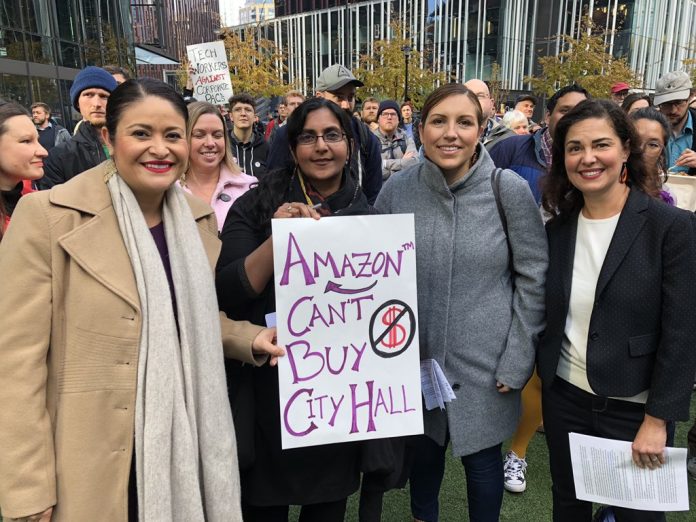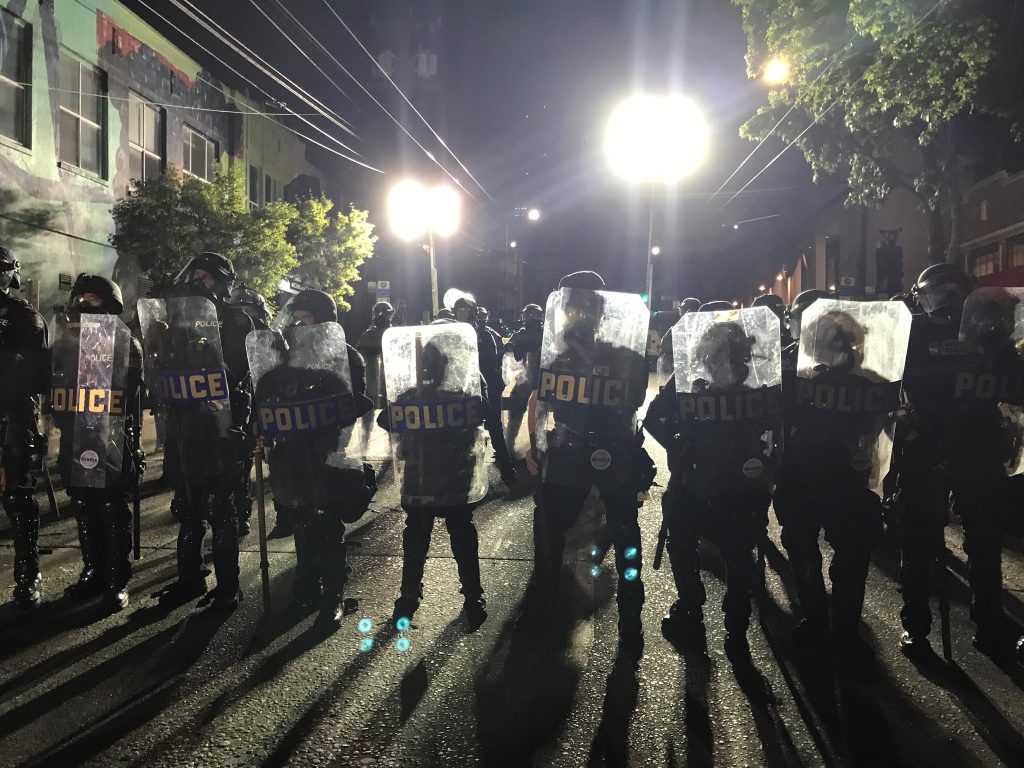
Mayor Durkan’s cut-heavy austerity budget may be history after Councilmember Teresa Mosqueda submits her counterproposal.
The Seattle City Council has been digesting Mayor Jenny Durkan’s budget proposal and flagging cuts they want to reverse, and the result of that labor is expected Tuesday as Budget Chair Teresa Mosqueda unveils her budget. Look for that Council budget to be a rebuke of the Mayor’s budget and an embrace of anti-austerity solidarity with struggling communities.
On Monday, the Mayor also revealed an updated revenue forecast showing an additional $57 million net revenue over the biennium. While on-street parking, commercial parking, and short-term rental tax revenue outlook worsened, upticks in sales, real estate excise, and business and operation tax collections buoyed the revenue forecast overall. With the extra revenue, cuts will not need to be as steep as the Mayor proposed.
Mayor Durkan proposed $21.5 million in cuts to bike and pedestrian projects, $70 million from local match for multimodal transit corridor projects, and about $8 million from the Center City Streetcar, which she halted work on for the second time. She also cut a $30 million equity fund set aside for projects like affordable housing and small business incubators that she had promised and allocated last budget with Mercer Megablock proceeds.
The impetus behind that cut was to count that $30 million toward her $100 million pledge to Black, Indigenous and people of color (BIPOC) communities. The rest of the pledge comes from raiding the JumpStart Seattle spending plan, which also emphasized affordable housing using proceeds from a progressive corporate payroll tax that the Mayor opposed. In a scathing memo, Council Central Staff criticized the Mayor’s move as duplicating work and asking communities of color to do outreach and engagement process all over again.
Police budget standoff
While many Durkan cuts are likely to be undone, the council is seeking cuts in one area where the Mayor has largely avoided: the Seattle Police Department (SPD).
While Mayor Durkan has called for “reimagining policing,” it appears her vision and Chair Mosqueda’s differ significantly. Emphasizing the need to go slow, Durkan’s budget would keep staffing at 1,400 sworn officers, which would require ending the hiring freeze and hiring more officers. Mosqueda and her colleagues backed reducing the force by 100 sworn officers in an August rebalancing package that the Mayor vetoed and the council reinstated via veto override in September, with only centrist Councilmembers Alex Pedersen and Debora Juarez dissenting.

Even with the veto override, Mayor Durkan has resisted carrying out the Council’s budget, and it’s not clear she and her interim Police Chief Adrian Diaz will seek out-of-order layoffs as requested by the council. With an uptick in officer attrition in September, it’s possible a move as simple as keeping the hiring freeze in place would still achieve the 100-officer reduction and potentially more. The council may still press the issue of layoffs targeting the officers with the worst records of excessive violence and corruption, including the Brady List–officers barred from testifying in court due to lying in the past.
The Mayor did shrink SPD’s budget to $360 million in her proposal, but relied on smoke and mirrors to do so. The Mayor would offload about $15 million by shifting parking enforcement out of SPD and $22 million spinning off 9-1-1 emergency call center as its own agency. While technically disappearing from SPD’s budget, that $37 million would not end up invested directly in BIPOC communities, as protestors calling for police divestment had urged. This is not a fundamental shift in policing, but a facelift.
The Urbanist, for our part, joined the Decriminalize Seattle coalition alongside hundreds of local organizations backing the call to re-invest 50% of SPD’s budget into BIPOC communities. Instead of the Mayor’s hand-picked task force, we’ve supported King County Equity Now’s Black-led participatory budgeting process to allocate the investments. We signed letters against austerity and for the solidarity budget. Policing, which is often counterproductive and excessive (as brutal control tactics during this year’s protests demonstrated), is the most prudent and equitable place to tighten our belts.
Transportation priorities
This week, Mayor Durkan also announced additional money from Seattle Transportation Benefit District (STBD) car tab collections that had been set aside pending the outcome of the Initiative 976 state supreme court case. Since Tim Eyman lost that case, the City has an extra $20 million or so to invest. It hasn’t yet been determined how to spend this money, but it would likely have to go through the City Council if it alters STBD spending parameters. Transportation Chair Alex Pedersen also seems likely to try to shift some of the money to bridges, but that idea might not go over so well with his council colleagues.
We’re optimistic that the Move All Seattle Sustainably (MASS) coalition package will get funded one way or the other.
With the overwhelming passage of Prop 1 renewing STBD transit funding, the City will also have a bit more breathing room next year; collections start in April. Some of the old STBD money will likely need to used to bridge bus service between the measures. If Seattle’s ambitions of becoming a 15-minute city are for real, the City must invest in walking, biking, and transit.
Doug Trumm is publisher of The Urbanist. An Urbanist writer since 2015, he dreams of pedestrian streets, bus lanes, and a mass-timber building spree to end our housing crisis. He graduated from the Evans School of Public Policy and Governance at the University of Washington in 2019. He lives in Seattle's Fremont neighborhood and loves to explore the city by foot and by bike.

